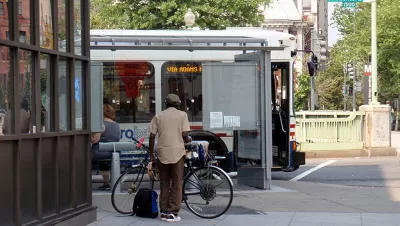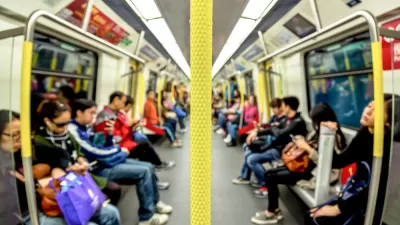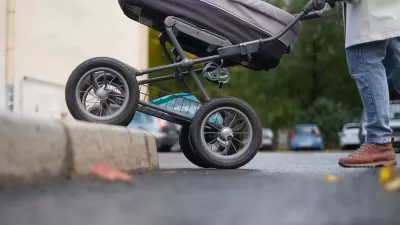A plan to prioritize equity would, according to regional planners, increase access to jobs and resources, reduce emissions, and improve public health.

D.C. officials "are considering whether to prioritize historically underserved areas with high concentrations of minority and low-income residents when deciding where to target affordable housing, transportation investments and other improvements," reports Katherine Shaver. According to regional planners, "[c]ompleting the half-finished National Capital Trail Network, they say, would help more people reach transit-accessible jobs, while reducing traffic congestion and greenhouse gas emissions."
If the plan is approved, "equity would be at the forefront of decisions affecting public health, housing, economic development, job growth and climate change" in addition to transportation. "D.C. Council member Charles Allen (D), the Transportation Planning Board’s chair, said the approach would address the 'east-west divide' that stems from the western part of the region having more jobs and the eastern part having less expensive housing and longer commutes."
"Under the proposal, local governments would focus development around the region’s 150 'high-capacity transit' stations, along with another 75 expected to be built by 2030. That would use the land more efficiently, planners say, because transit stations occupy just 10 percent of the region’s land."
The Metropolitan Washington Council of Governments board will vote on the proposal on October 13. "Separately — but in line with the proposed equity-based approach — the planning board on Wednesday approved its first grants for preliminary design or engineering on local projects that would make it easier and safer to walk or bike to major transit stations."
FULL STORY: D.C.-area leaders consider prioritizing equity in transportation and land use planning

Planetizen Federal Action Tracker
A weekly monitor of how Trump’s orders and actions are impacting planners and planning in America.

Congressman Proposes Bill to Rename DC Metro “Trump Train”
The Make Autorail Great Again Act would withhold federal funding to the system until the Washington Metropolitan Area Transit Authority (WMATA), rebrands as the Washington Metropolitan Authority for Greater Access (WMAGA).

The Simple Legislative Tool Transforming Vacant Downtowns
In California, Michigan and Georgia, an easy win is bringing dollars — and delight — back to city centers.

The States Losing Rural Delivery Rooms at an Alarming Pace
In some states, as few as 9% of rural hospitals still deliver babies. As a result, rising pre-term births, no adequate pre-term care and "harrowing" close calls are a growing reality.

The Small South Asian Republic Going all in on EVs
Thanks to one simple policy change less than five years ago, 65% of new cars in this Himalayan country are now electric.

DC Backpedals on Bike Lane Protection, Swaps Barriers for Paint
Citing aesthetic concerns, the city is removing the concrete barriers and flexposts that once separated Arizona Avenue cyclists from motor vehicles.
Urban Design for Planners 1: Software Tools
This six-course series explores essential urban design concepts using open source software and equips planners with the tools they need to participate fully in the urban design process.
Planning for Universal Design
Learn the tools for implementing Universal Design in planning regulations.
Smith Gee Studio
City of Charlotte
City of Camden Redevelopment Agency
City of Astoria
Transportation Research & Education Center (TREC) at Portland State University
US High Speed Rail Association
City of Camden Redevelopment Agency
Municipality of Princeton (NJ)





























